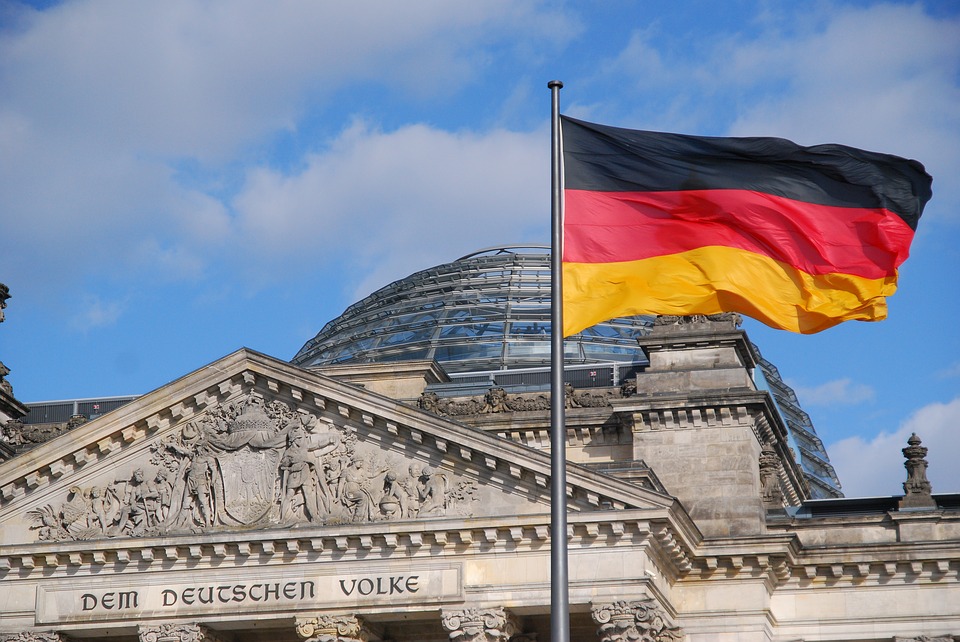Despite U.S. President Donald Trump’s harsh words last July at a NATO meeting when he said Germany is “being captive to Russia” due to its dependence for energy resources, a recent survey showed that Germans are overwhelmingly in favor of expanding cooperation. According to the results of a survey commissioned by the RTL Media Group, nearly 73 percent of Germans support the construction of the Nord Stream 2 gas pipeline.
If completed, the pipeline will deliver 55 billion cubic meters of natural gas from Russia to Europe via two parallel lines laid along the bottom of the Baltic Sea. The 1,200-kilometer twin pipeline is expected to double Russia’s gas exports to Germany, which is currently Russia’s biggest buyer. The project, scheduled for completion later this year, could increase Russia’s market share of German imports, which is between 50 and 75 percent according to the European Union’s statistics agency Eurostat.
Even though German Chancellor Angela Merkel has repeatedly defended the Nord Stream 2 project as a purely economic venture, debates still rage over whether the project is genuinely commercial or a political tool that will increase Europe’s dependence on Russia.
“Nord Stream 2 and an expanded Turkish Stream pipeline seek to deepen dependence (of Europe) rather than strengthen security,” said Francis Fannon, the Assistant Secretary for the Bureau of Energy Resources at the U.S. Department of State. “They are not commercial projects; they are political tools,” Fannon said during a telephone briefing with reporters in December.
His words echo those of President Trump last summer in Brussels.
“They [Germany] will be getting between 60 and 70 percent of their energy from Russia and a new pipeline, and you tell me if that is appropriate because I think it's not,” Trump had said.
About 90 percent of respondents to the RTL Media Group survey believe that Trump's objections to Nord Stream 2 are directly related to his plan to try and sell American liquefied natural gas (LNG) to Germany. With Europe’s domestic energy production falling and Germany’s consumption predicted to rise, however, Nord Stream 2 may be the more efficient option.
Nearly 67 percent of Germans who participated in the survey stressed that the pipeline does not pose any threat to Germany, while 16 percent of respondents said that Germany can do without Nord stream 2.
Meanwhile, the United States has warned German companies involved in the Russian-led energy project of possible sanctions. U.S. Ambassador to Germany Richard Grenell sent a warning letter to several companies earlier this month.
“The letter reminds that any company operating in the Russian energy export pipeline sector is in danger under CAATSA of U.S. sanctions,” the U.S. embassy spokesman said, according to Reuters. The spokesman said that other European countries also oppose the planned pipeline.
Along with Russian energy giant Gazprom, Nord Stream 2 is being built by a consortium of western European energy companies: Austria’s OMV, France’s Engie, Germany’s Uniper and Wintershall, and the Anglo-Dutch firm Shell.
“Anyone who is not satisfied with our policies can send me a letter,” said German Energy Minister Peter Altmaier in response to U.S. threats, speaking at the Handelsblatt Energy Summit in Berlin on Sunday. Altmaier also stressed that Grenell’s letter did not “impress or intimidate” the German government.
The U.S. is still pushing for Europe to abandon the $11 billion project, despite kilometers of pipes having been laid underneath the Baltic Sea.
“The work is on schedule, more than 20 percent of this new offshore gas pipeline has already been built,” RIA Novosti quoted the Chief Executive Officer of the Russian energy giant Gazprom, Alexey Miller, as saying on Monday, following the trilateral meeting with Ukraine and European Commission in Brussels, where the prospects for the transit of Russian natural gas to Europe through the territory of Ukraine was discussed.







 President Ilham Aliyev shed light on the evolving contours of the peace process with Armenia during an international conference in Baku this week. ...
President Ilham Aliyev shed light on the evolving contours of the peace process with Armenia during an international conference in Baku this week. ...
 Azerbaijan and Armenia started the process of demarcation of their border on Tuesday, with the installation of the first border markers based on ge...
Azerbaijan and Armenia started the process of demarcation of their border on Tuesday, with the installation of the first border markers based on ge...
 Armenian sappers commenced on Monday mine-clearance operations in the territories adjacent to the Saint Mary Church in village of Voskepar (Armenia...
Armenian sappers commenced on Monday mine-clearance operations in the territories adjacent to the Saint Mary Church in village of Voskepar (Armenia...
 Iran and Pakistan have signed eight cooperation documents in various fields, and agreed to strengthen ties to fight terrorism in the region.
Iran and Pakistan have signed eight cooperation documents in various fields, and agreed to strengthen ties to fight terrorism in the region.
 As the conflict between Ukraine and Russia escalates, the strategic importance of Kharkiv, Ukraine's second-largest city, has come sharply into focus.
As the conflict between Ukraine and Russia escalates, the strategic importance of Kharkiv, Ukraine's second-largest city, has come sharply into focus.
 President Aliyev emphasized the critical role of the North-South Transport Corridor in fostering transport cooperation between Azerbaijan and Russi...
President Aliyev emphasized the critical role of the North-South Transport Corridor in fostering transport cooperation between Azerbaijan and Russi...



